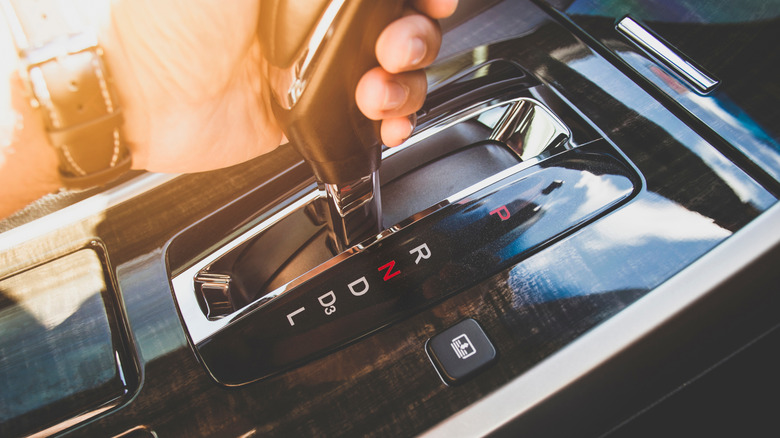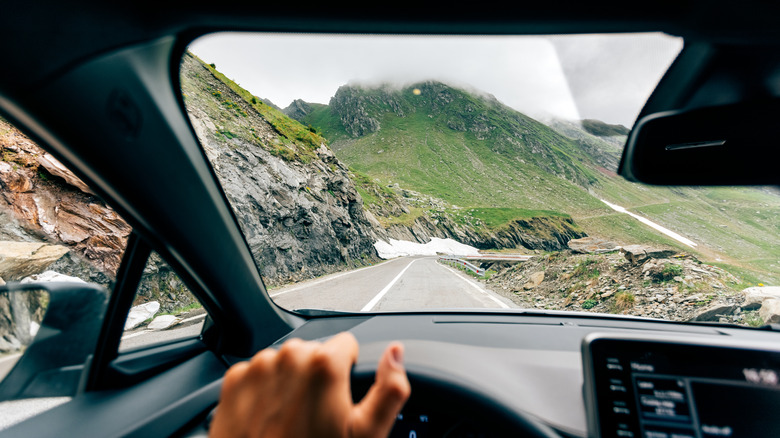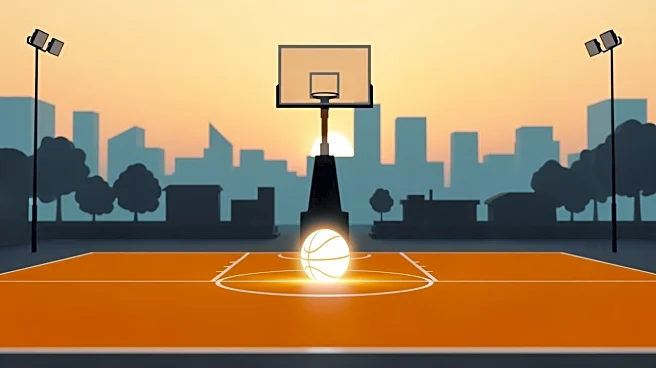
Anybody who's been around cars for a while has probably picked up some questionable advice along the way. In particular, saving money on gasoline is popular fodder for urban legends. Even though gas prices
are lower than their record-high nationwide average of $5.02 per gallon in June 2022, Investing site Motley Fuel estimates that Americans are still spending about 3.2% of their budgets on fueling up their rides. In dollar terms, that's equal to around $204 every month or $2,449 annually.
With that in mind, we don't blame drivers for trying dubious tactics like drafting behind 18-wheelers, considering scam gas-saving devices like magnets, or buying a vehicle with a manual transmission. Okay, that last bit was actually true at one time, but automatics have greatly improved in recent decades. Another tip that frequently makes the rounds is to shift your transmission from drive to neutral when coasting downhill to save fuel. Or for you manual drivers, holding the clutch pedal down instead.
The logic is that by disengaging the engine from the driveline, it'll just be idling at a low RPM and subsequently use less fuel. That thinking isn't totally wrong-headed, but it also doesn't take into account the level of technology that's present in modern cars and trucks. Plus, coasting in neutral could actually be dangerous.
Read more: These Are The Longest Lasting All-Season SUV Tires According To Consumer Reports
Coasting Is Illegal In Most States

While new technology isn't always perfect, like the teething pains we're experiencing with AI and cars, computers have been present on many motor vehicles since at least the early 1980s. Nowadays, the Engine Control Module (ECM), paired with fuel injection, has the ability to actually shut off the flow of fuel to the engine when it senses that a vehicle is coasting. Meanwhile, the vehicle's downhill momentum will keep the engine turning.
However, that automatic fuel shut-off while the vehicle is rolling downhill only applies if the transmission is in gear. If you shift the transmission to neutral, the ECU will sense this and continue to provide enough fuel to idle the engine. As it turns out, an idling engine actually uses more fuel than one that's left alone in gear for gravity to do its work.
Beyond the fact that modern vehicles don't save gas from coasting downhill, it's also patently unsafe. By coasting, you'll not get the benefit of engine braking to slow down your vehicle. That's especially true for drivers who are savvy enough to shift into a lower gear to promote additional engine braking. Instead, you'll need to periodically slow the runaway downhill vehicle with the actual brakes, which can lead to overheating and brake fade. Finally, it could be necessary to quickly accelerate to avoid a dangerous situation. For these reasons, coasting downhill is actually illegal in most states.
Want more like this? Join the Jalopnik newsletter to get the latest auto news sent straight to your inbox...
Read the original article on Jalopnik.












